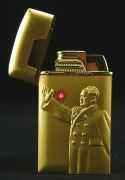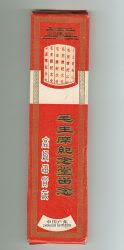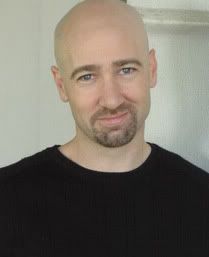China Stories Pt 19: The Holidays
I don't mean Christmas. This being a fairly linear narrative, I'm talking about holidays in the spring. Spring has holidays, oh yes.
On St. Patrick's Day, I ended up drinking beers with some students from UCLA in a bomb shelter on the Beijing University campus. It seemed appropriate.
After the PRC split with the Soviet Union, Chairman Mao became extremely paranoid about being attacked by the Russians. Among the crazier things Mao did was move entire industries to remote, protected areas. Equipment, families, schools, everything. He did this with Second Auto Works, China's largest truck manufacturer - relocated it from Shanghai to a remote valley in central China. Imagine picking up General Motors, lock stock and barrel, and moving it into the Appalachians.
"Kids I've got good news and bad news."
"What's the good news?"
"Daddy got promoted today! And I still have my job."
"What's the bad news?"
"Well, the whole company is moving to Gnaw Bone Holler, Kentucky. And because our society doesn't allow any individual freedom of movement, chances are our family will be stuck there for generations. What's for dinner?"
Mao also built bomb shelters all over Beijing. The downtown area was riddled with shelters and interconnected tunnels. One of them was used as a shopping arcade.
***
On Easter, I got up early with my friends to go out to the Great Wall for a sunrise service. It was a long drive out there, maybe an hour or so, so we left in the dark. It was so quiet and peaceful, the throngs of tourists blissfully absent. It was beautiful to be on the wall as the sun came up.
During the service, three students in front of me kept whispering. It was mildy annoying. At first I thought they were just being rude. Then I realized that one student was translating the Chinese to English for the second student, and then that student in turn was translating it into French for the third student, who was African. That was pretty cool.
(Many Africans come to study in China. Frequently they are not well prepared for their studies, speaking a little English and no Chinese. They don't have much money, and are unable to return home until they are done. They are even less prepared for the culture shock of living in China. They were generally treated very poorly - especially if they socialized with Chinese women. But the rare opportunity to be trained as a doctor or an engineer was, I guess, highly motivating.)
After the service, we explored the wall a bit. Since there wasn't anyone out there yet, it was exhilerating. We weren't asses-to-elbows with ten thousand other tourists! Nobody was yelling "hello!" at me randomly! Nobody was harrassing me for an hour to buy a t-shirt!
We went all the way to the end of the restored section, then continued on the unrestored section of wall. (There was nothing saying we couldn't - it was just not as easy.)
The wall itself is...um, great. But the place that most tourists visit - the place where we were, Ba Da Ling - has been meticulously restored. No doubt it was necessary from wear. But everything is new, so it has an ersatz quality. Like everything in Las Vegas.
(It reminds me of a Chinese classical music show I attended once, where they announced in solemn tones that the instrument that was being played was over three hundred years old - but each part of it had been replaced.)
(Lots of parentheticals today. Sorry.)
Climbing on the unrestored part of the wall was something else - it was much easier to get a sense of the age of the wall, and what an achievement its construction must have been.
After our hike we returned to the city and gorged ourselves on brunch at the Jian Guo Hotel. I spent a good-sized little chunk of my CBS money on champagne and pancakes.
Fortunately, I was about to have another opportunity to earn some spending money courtesy of CBS.




